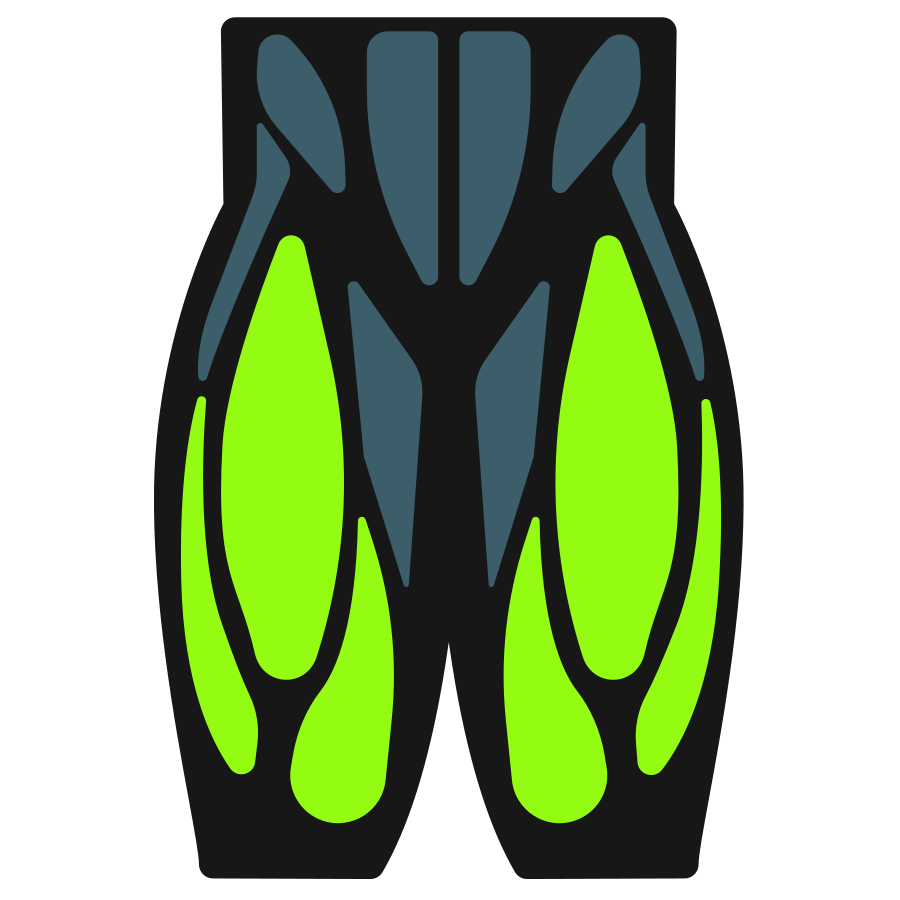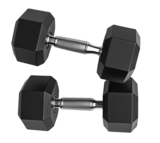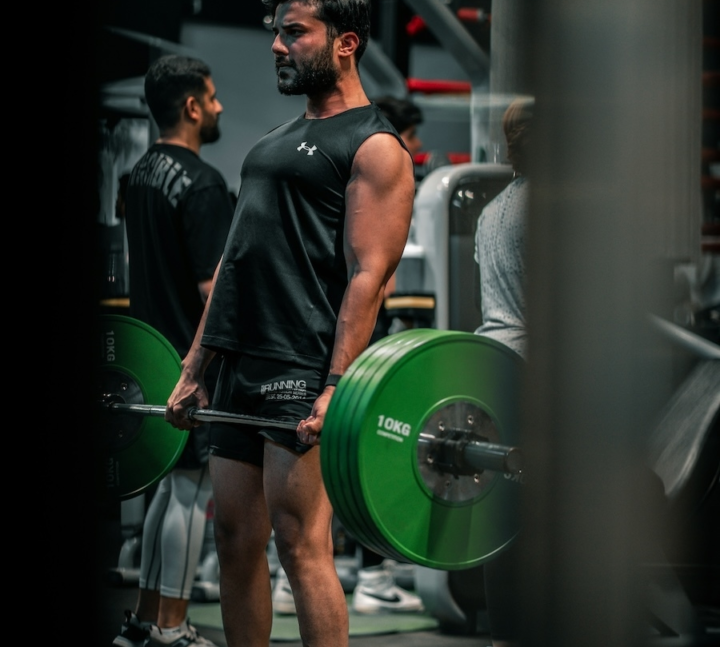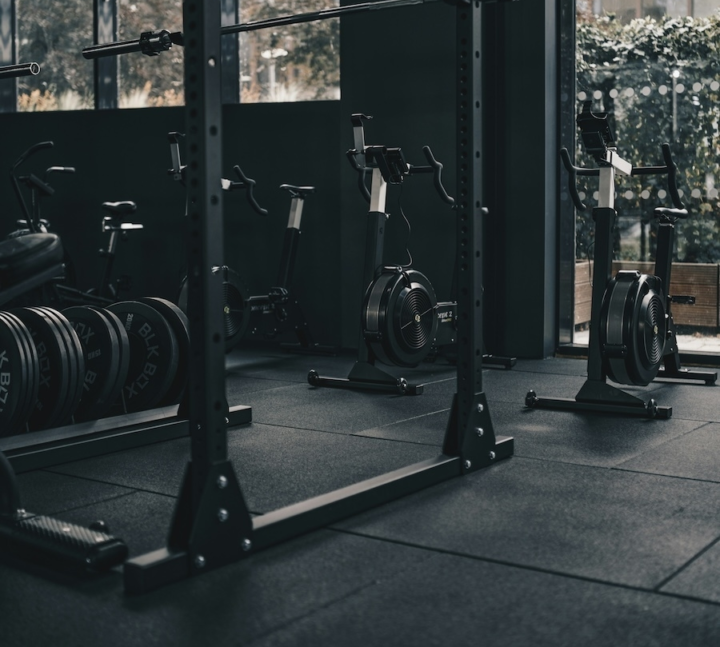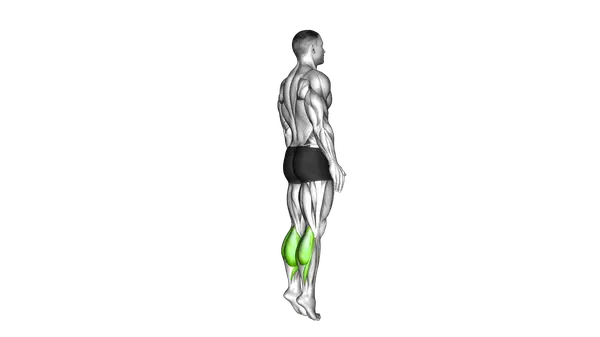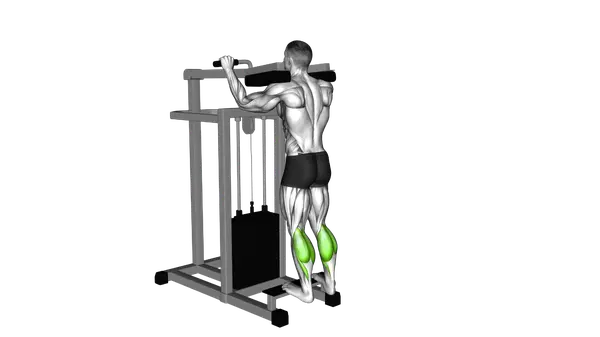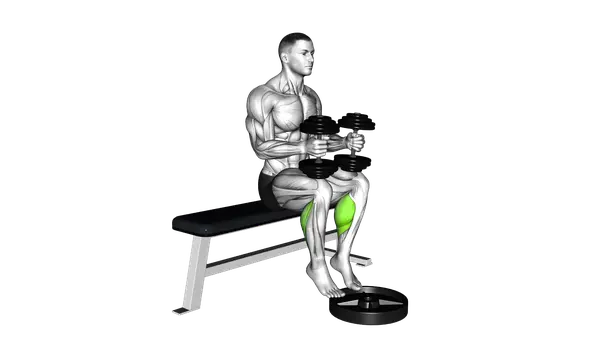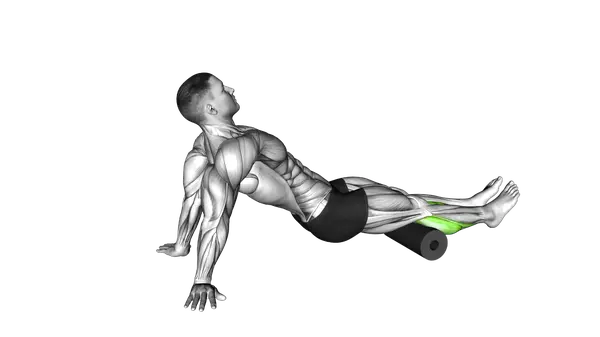Exercise
Standing One-Leg Calf Raise With Dumbell
How to Perform - Standing One-Leg Calf Raise With Dumbell
- Stand with feet hip-width apart holding a dumbbell in your right hand and place your left hand on a wall or stable surface for balance.
- Shift your weight onto your right foot and slightly bend your left leg, raising it off the ground a few inches.
- Position the dumbbell at your side with a neutral grip, keeping your shoulders pulled back and your core engaged.
- Inhale and prepare for the movement by maintaining a tall posture with your head aligned with your spine.
- Exhale as you press through the ball of your right foot to raise your heel as high as possible, reaching the top position of the calf raise.
- Pause briefly at the top of the movement, focusing on the full contraction of your calf muscle.
- Inhale as you slowly lower your heel back toward the floor with control, allowing a full stretch in the calf muscle.
- Complete all repetitions on one leg before switching the dumbbell to your other hand and repeating the exercise with your left leg.
Important information
- Keep your standing leg slightly soft (not locked out) to maintain proper joint alignment and prevent knee stress.
- Ensure your weight remains primarily on the ball of your foot throughout the movement, not shifting to the inside or outside edge.
- Focus on a full range of motion, allowing your heel to drop slightly below the level of your toes at the bottom for maximum calf stretch.
- If balance is challenging, start with lighter weight or no weight until you develop sufficient stability before progressing.
Primary Muscles
Muscle Groups
Mechanic
Risk Areas
Built for progress
Take the guesswork out of training
Create personalized AI-powered workout plans that evolve with you. Train smarter, track every rep and keep moving forward, one workout at a time.






The Standing One-Leg Calf Raise with Dumbbell offers an exceptional challenge for those looking to target calf development with precision and intensity. This intermediate-level exercise zeroes in on the gastrocnemius and soleus muscles, creating defined, powerful calves that enhance both athletic performance and aesthetic appeal. By isolating each leg individually, this variation eliminates the compensation patterns that often occur during two-legged calf exercises. The addition of the dumbbell provides adjustable resistance, making it ideal for bodybuilding enthusiasts seeking symmetrical development and individuals in recovery needing to address muscle imbalances between legs. What sets this exercise apart is its remarkable efficiency in building functional strength in the lower extremities.
The unilateral nature of the movement engages stabilizing muscles throughout the ankle and foot, developing proprioception and balance alongside raw calf power. This translates directly to improved performance in activities ranging from sprinting and jumping to everyday movements like walking and climbing stairs. The beauty of the one-leg dumbbell calf raise lies in its versatility.
For bodybuilders, it serves as a specialized tool for bringing up lagging calves and creating the sought-after "diamond" shape at the back of the lower leg. For those in recovery, it provides a controlled environment to rebuild strength in a previously injured limb while maintaining precise loading parameters. Research suggests that calf muscles respond particularly well to higher rep ranges and time under tension, making this exercise especially effective when performed with deliberate control through both the concentric and eccentric phases. The added stability challenge of the single-leg stance further recruits muscle fibers that might otherwise remain dormant during supported variations.
Whether incorporated into a dedicated leg day or added as a finishing movement after other lower body work, the Standing One-Leg Calf Raise with Dumbbell delivers remarkable results when performed consistently within a progressive strength program.
FAQ - Standing One-Leg Calf Raise With Dumbell
This exercise primarily targets the gastrocnemius and soleus muscles of your calf, while also engaging stabilizing muscles throughout your ankle and foot. The single-leg stance significantly increases the activation of these muscles compared to bilateral variations.
For an easier version, place your feet wider apart on the ball or position the ball closer to your body. To increase difficulty, try performing the movement with one leg raised, holding a weight across your hips, or increasing time under tension by slowing down the movement.
The most common mistakes include rounding your lower back, rotating your hips instead of keeping them square, rushing through the movement, and not hinging properly at the hips. Focus on maintaining a neutral spine, moving with control, and keeping your standing knee slightly soft rather than locked.
You can safely perform this exercise 3-4 times weekly, either as part of your warm-up or cool-down routine. It's particularly beneficial after intense upper body training sessions or on recovery days to maintain shoulder health and function.
The one-leg variation eliminates compensation patterns between legs, addresses muscle imbalances, and creates greater tension in the working calf with less total weight. This unilateral approach also improves balance, proprioception, and functional strength that transfers to athletic performance and everyday activities.
